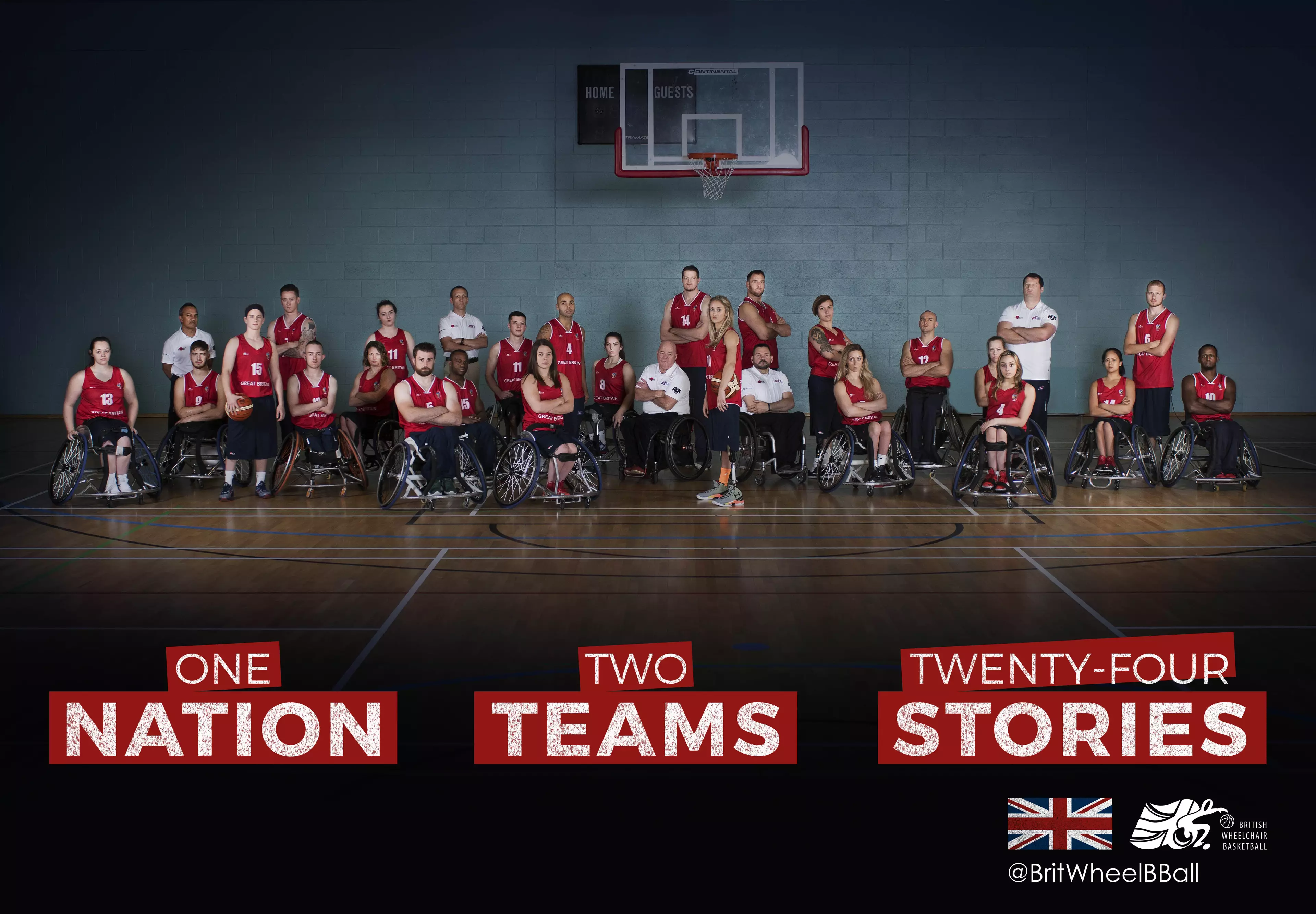
Featured image credit: British Wheelchair Basketball
Right lads, huddle in. In the next few minutes, I am going to attempt to squash the stigma that is attached to Paralympians.
You only have to meet Team GB's wheelchair basketball team to understand why these players are nothing like you and I. Instead, they're stronger, fitter, more determined and have a much cooler day job than most.
The Lad Bible and Sport Bible were exclusively invited to watch on the side-lines at one of the team's last training sessions before they fly out to Rio ahead of the Paralympic Games. I not only learned about the rules and the sport itself, but I also got a glimpse into what team life is really like within the camp.
Each member of the squad may have experienced different hardships, obstacles and setbacks along the way, yet each share the same goal. Just being a part of the Rio experience isn't enough - and rightly so. Their job won't be complete until they have given everything in their matches, proudly worn the colours of GB and out-performed their competitors.
So here's what you need to know about wheelchair basketball. Firstly, it's fast paced - blink and you will miss a tackle or a shot at the hoop. The ball can change possession and end up at the other side of the court in just a matter of seconds. Don't let the chairs or the impairments fool you, though; it's physical! Athletes are allowed to smash into each other at any point to create diversions for the other team.
Advert
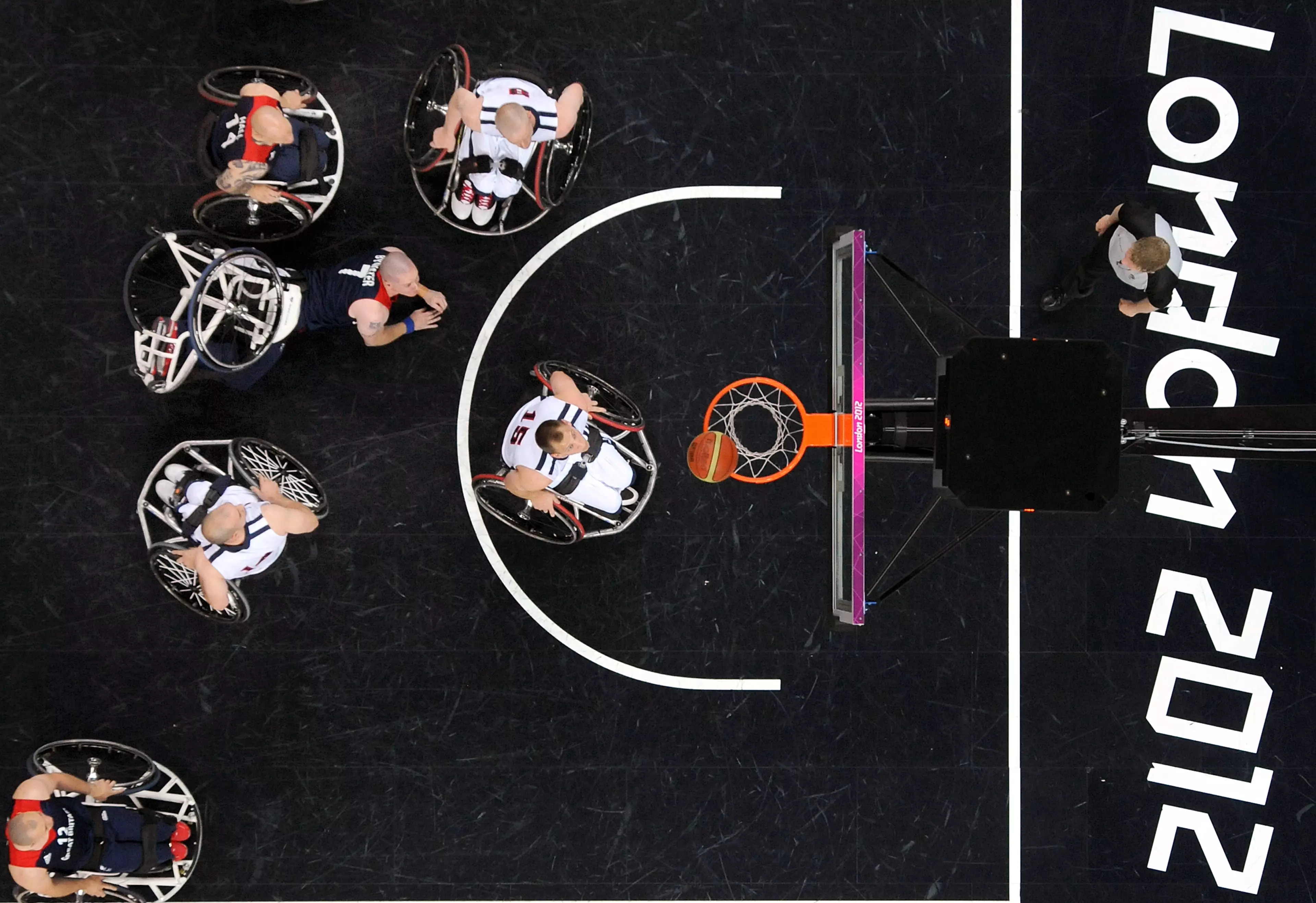
Image credit:PA
There are five players on each side and just like running basketball, the aim for each team is to get as many balls through the hoop as possible. A team has 24 seconds from taking possession of the ball to complete its attempt on the basket. Matches consist of four quarters of 10 minutes each. The player with possession must bounce the ball or pass every two pushes of their chair.
Medalling among the incredibly tight competition is a big ask, but both GB's women's and men's teams have done as much as possible between now and the Paralympics to be fully prepped and go into Rio with the best possible chances.
For some, Rio will be their debut as Paralympians. For others, it's another to tick off. For the men's who competed in London, it's time to set the record straight after finishing the event in 2012 in fourth. "Yeah, finishing London, home games, in fourth was hard - it feels, at the time, worse than coming last," Co-captain Terry Bywater tells The Lad Bible. "But it steers us with determination towards the next one, in this case, Rio!"
Co-captains of the men's team, Bywater and Simon Brown have similar styles when it comes to leading their team in matches; leading from within the pack, while treating everyone as equal. "I do a little bit of everything on the court," explains Bywater. "[As Co-captain] I give the younger lads the experience they need to help them out towards a Paralympic Games."
Advert
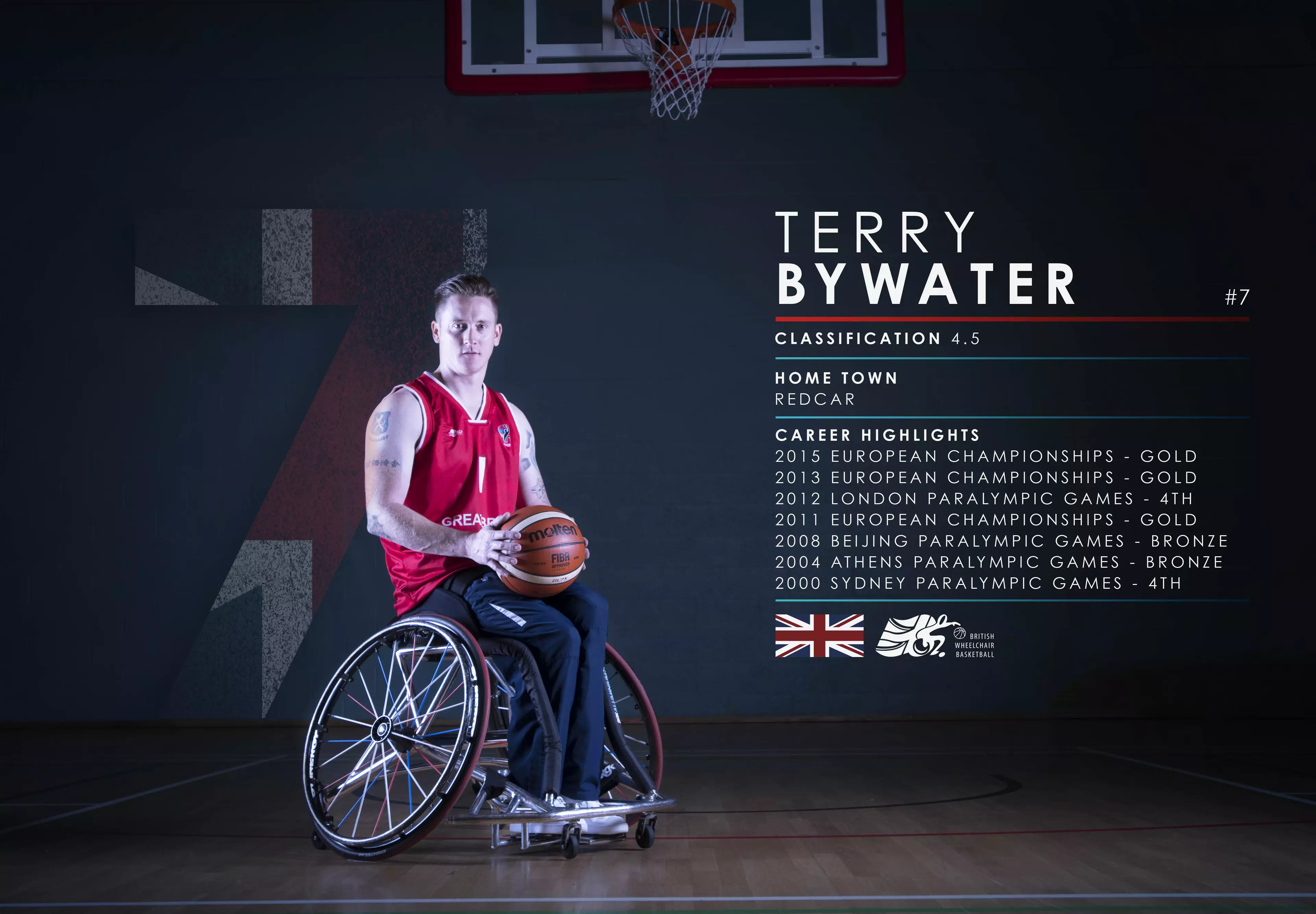
Terry Bywater. Image credit: British Wheelchair Basketball
Spending time to gel as a team is all part of the programme. The athletes, devote most of their lives together, training, travelling and in the gym. Getting on off the court is paramount in order to do well on the world stage. "I've been to one Paralympic Games so far. I missed out on London," says Brown. "I was a kid back then really. I now have a lot more responsibility now to be a part of leading this strong team."
Advert

Simon Brown. Image credit: British Wheelchair Basketball
Simon Munn, who plays centre on the team, wasn't always into basketball. There was a time when he was an avid footballer.
One night, though, life as he knew it changed forever. "I was out drinking one night and took a shortcut home and found myself on the wrong side of the [train] track," he says.
Advert
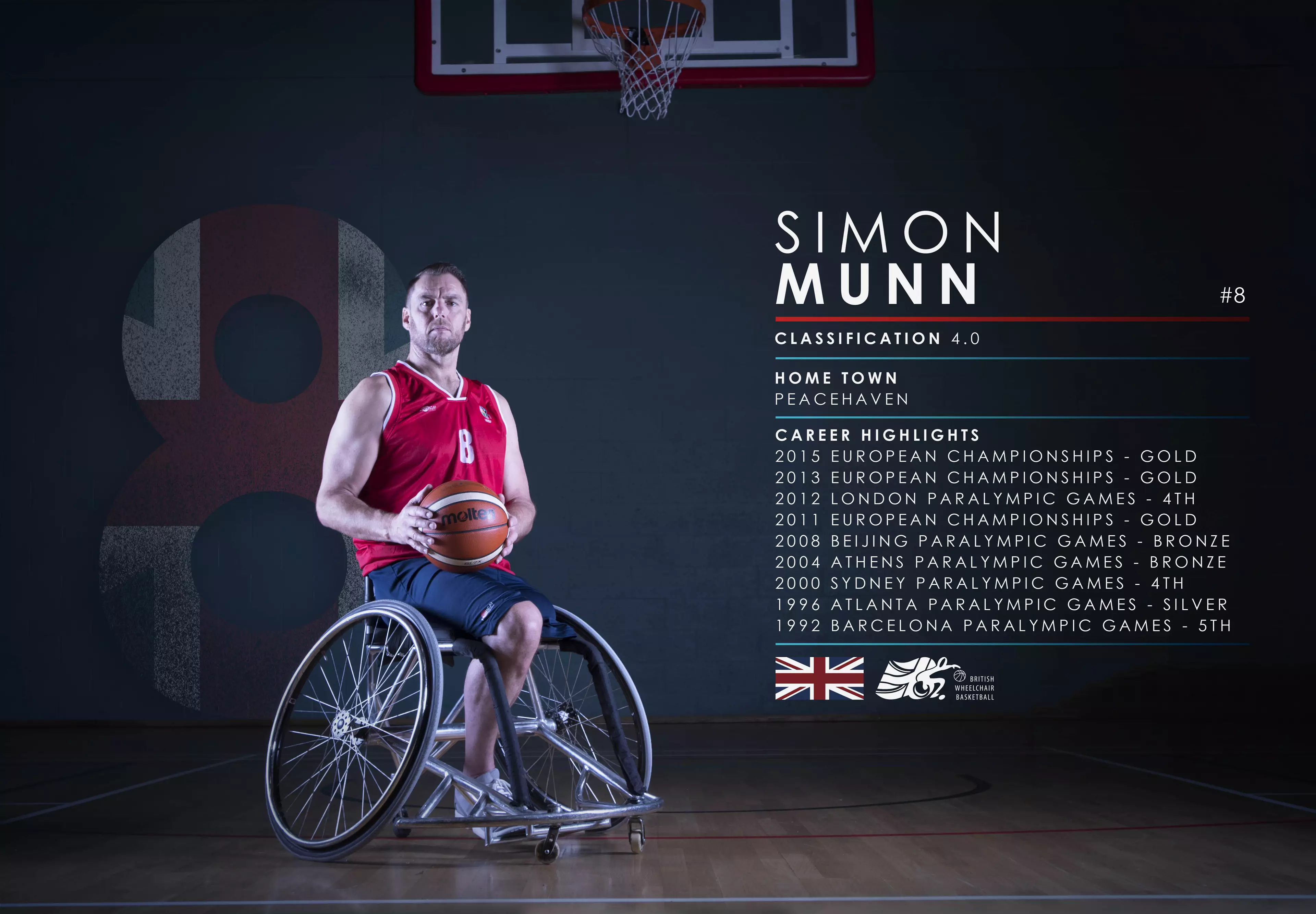
Simon Munn. Image credit: British Wheelchair Basketball
He became stuck with no one around to help. "It was a couple of minutes before the train came. When it did come, it ran my leg over, chopped it off if you like and then I had to get help."
Advert
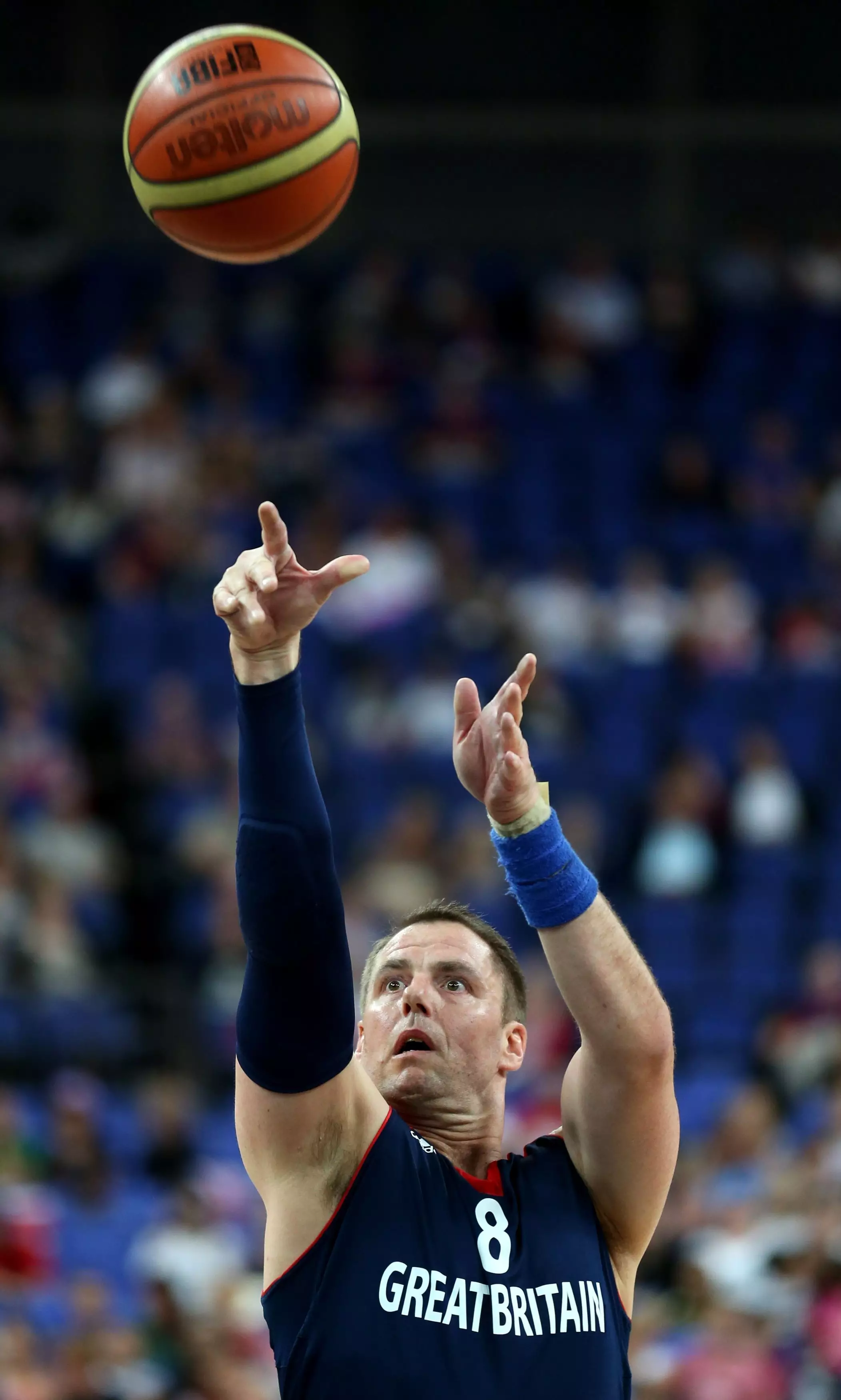
Simon Munn, London 2012 Paralympics. Image credit: PA
He crawled away from the track, over a fence, down the ditch and over the other side of the road to get the attention of a car. His incident left him with one leg and his football days were over.
As one door shuts, another creeps open. That was the case when Munn was introduced to a new sport.
Without letting his impairment affect anymore of his life than it had to, he accepted the invitation to try out wheelchair basketball. Well, the rest is history.
Having been a member of the team and proudly wearing the British colours for 26 years now, and set to compete at what will be his seventh Paralympic Games, his journey to Rio was determined through his talent. Like the rest of the team, he earned his rightful place on the team by putting in the effort and proving his worth. Meanwhile, I am told that his 'dad jokes' banter keeps the team grounded.
The Lad Bible meets the GB Men's Wheelchair Basketball team
Over in the women's squad, Co-captain Helen Freeman has already represented GB at three Paralympic Games. She first got a feel for the sport when she was 12 years old. Since then, she has moved her way up the ranks. Now with Rio, her third Paralympic Games, on the horizon, she is excited, honoured and just exciting to get competition started. "Since the legacy of London, we have had some new players come into the camp," she says. "We practice two or three times a day and we have never had a preparation like this, so it has been super intense. It's a privilege, it's tough but we all love it."
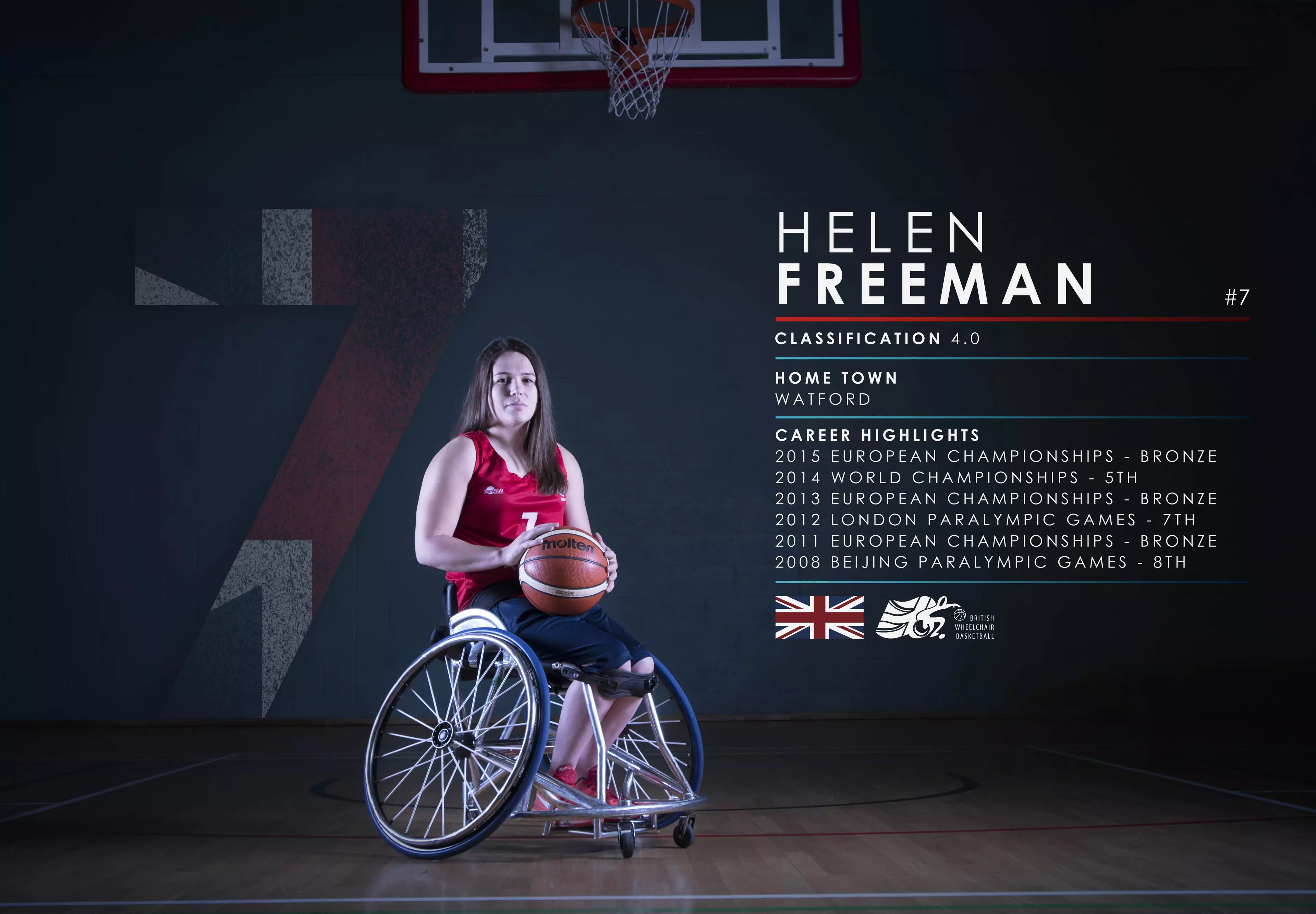
Helen Freeman. Image credit: British Wheelchair Basketball
We talk about legacy like its expected. Almost like we deserve something in return from the Games, but after my time with the wheelchair basketball team, legacy isn't about that at all. It's about us, our attitudes, opening our minds to appreciate good sport as opposed to athletes in wheelchairs. "Because of the participation increased so much since London, we are hoping that the same will happen from Rio," says Freeman.
The Lad Bible meets Co-captian of the GB women's team's Helen Freeman
In 2012, these amazing athletes with the help of Channel 4, were all part of inspiring a generation. Now, four years on and with a recorded double the amount of participants in the sport, the level of competition has soared. Junior teams are training alongside their inspirations to one day themselves, be in the shoes of those athletes that are heading to Rio.
"They are an inspiring bunch of people," says Haj Bhania, who came on board as head coach of the men's team in 2013. "We ensure that all preparations are done a long time before we start an event. It's down to the team during the match to work together and put it all into play."
With another training session drawing to a close, and the Rio Paralympics becoming nearer by the day, the preparations are now complete. It's time for both teams to put the hours of work, on and off the court, into action.
Roll on Rio and good luck to all our GB Paralympians.
Featured Image Credit:Topics: rio, Disability